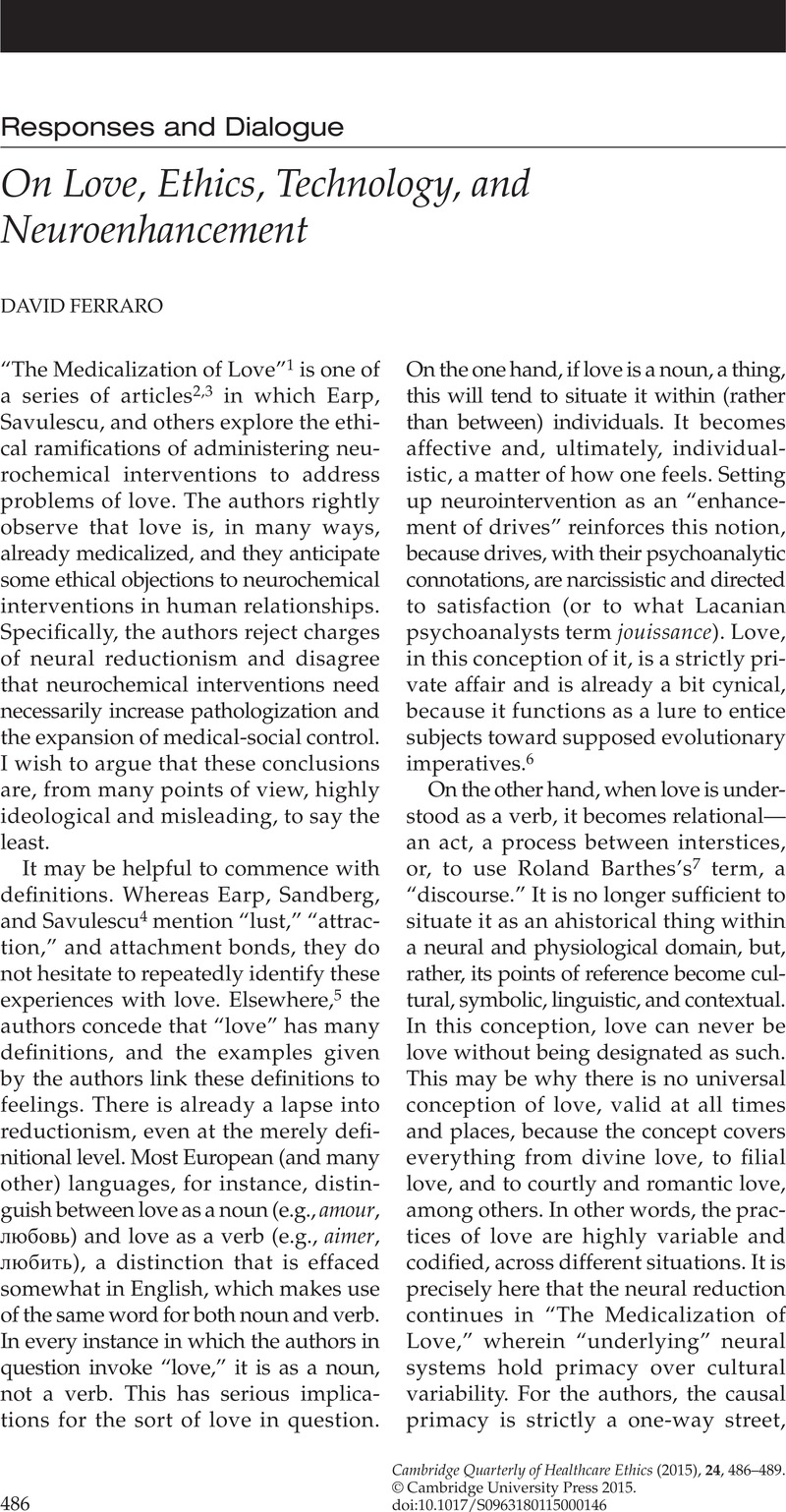Published online by Cambridge University Press: 14 September 2015

1. Earp, BD, Sandberg, A, Savulescu, J. The medicalization of love. Cambridge Quarterly of Healthcare Ethics 2015;24:323–36.CrossRefGoogle ScholarPubMed
2. Savulescu, J, Earp, BD. Neuroreductionism about sex and love. Think: A Journal of the Royal Institute of Philosophy 2014;13(38):1–6.CrossRefGoogle ScholarPubMed
3. Earp, BD, Wudarczyk, OA, Sandberg, A, Savulescu, J. If I could just stop loving you: Anti-love biotechnology and the ethics of a chemical breakup. The American Journal of Bioethics 2013;13(11):3–17.CrossRefGoogle Scholar
4. See note 1, Earp et al. 2015.
5. See note 3, Earp et al. 2013.
6. These evolutionary imperatives—assumed by both the preceding authors and other proponents of neuroenhancement—tend to misuse the concept of evolution itself. Where evolutionary theory functions as an explanation of change, it is here, repeatedly, invoked as teleology. This is a significant problem in the psy-disciplines, in which bioreductionism not only is commonplace but is also based on a mishandling of the biology itself. Aristotle distinguished four causes; contemporary psychiatry wishes to shoehorn biology into each of them. It is as if there are no alternatives between the most naïve Cartesian dualism and the crude materialism favored by the present authors. Descartes was obviously wrong on the pineal gland, but he had some messages about subjectivity that the psy-disciplines would do well to heed.
7. Barthes R. A Lover’s Discourse: Fragments. Howard R, trans. London: Vintage; 2002 (1977).
8. I.e., “Guns don’t kill people, people kill people.”
9. Heidegger, M. The Question Concerning Technology and Other Essays. Lovitt W, trans. New York: Harper Perennial; 1977.Google Scholar
10. See note 1, Earp et al. 2015, at 329.
11. Žižek, S. The Sublime Object of Ideology. London: Verso; 1989.Google Scholar
12. See note 3, Earp et al. 2013, at 5-6.
13. Kaminsky, A. Neuroenhancement of human relationships. Harcourt Health 2013 Aug 23Google Scholar; available at http://www.harcourthealth.com/neuroenhancement-of-human-relationships/ (last accessed 6 Sept 2014).